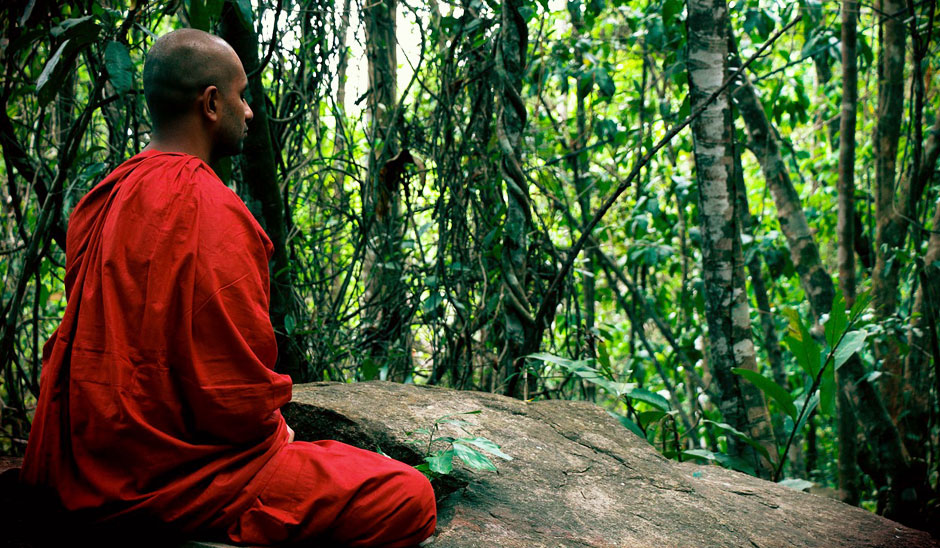Monk Meditation: How to Meditate Like a Buddhist Monk
Last Updated: July 30, 2023
Tweet
A Buddhist monk is a man who has devoted his life to the pursuit of Buddhism. He lives in a monastery and follows a set of rules aimed at attaining enlightenment. These guidelines usually include abstaining from alcohol, drugs, meat, and sexual activity. Monks dedicate their time to studying Buddhist scriptures, engaging in meditation, and conducting rituals. The role of a Buddhist monk has evolved over time.
In the early days of Buddhism, their primary responsibility was to disseminate the Buddha's teachings. They would travel to various locations, imparting knowledge about the Dharma, the path to enlightenment in Buddhism. Presently, while monks still contribute significantly to spreading Buddhism, they also serve as instructors, counselors, and healers.
There are various categories of Buddhist monks, each observing unique traditions and practices. Some live in secluded monasteries, while others reside in urban settings, collaborating with laypeople to promote Buddhist principles.
Regardless of their living arrangements or roles, all Buddhist monks are unwaveringly devoted to following the Buddha's teachings and aiding others in their pursuit of enlightenment.
Buddhist Monks and Meditation
Meditation is an essential part of Buddhism, and Buddhist monks dedicate numerous hours each day to this practice. Meditation is regarded as a means to cultivate the mind, fostering mindfulness, concentration, and wisdom. Buddhist monks employ various forms of meditation, and among the most prevalent are:
Vipassana meditation, also known as insight meditation, involves directing attention to the present moment and attentively observing the thoughts, emotions, and sensations that arise in the mind.
Please click here to get the complete details on available programs, activities , accommodation, cost, visa , vaccination, airport arrival and the rest of it.
Get More Info Now »
Samatha meditation, or calm abiding meditation, centers around focusing on a single object, often the breath, with the aim of soothing and settling the mind.
Metta meditation, also called loving-kindness meditation, involves nurturing sentiments of love, compassion, and benevolence towards both oneself and others.
Buddhist monks view meditation as a means of aiding others beyond personal well-being. They frequently impart meditation teachings to laypeople, utilizing this practice as a tool to help individuals transcend suffering and attain enlightenment.
Meditation wields substantial influence on the mind and body, and Buddhist monks have a rich heritage of meditation, having honed numerous effective methods to nurture mindfulness and wisdom. If you have a keen interest in delving further into meditation, I recommend seeking guidance from a Buddhist monk or teacher who can accompany you on your path.
How to Meditate Like Buddhist Monk
If you want to meditate like a Buddhist monk, there are several helpful tips to keep in mind. First, locate a quiet and peaceful spot for your practice, whether it’s a room at home, a nearby meditation center, or a serene park.
Once settled, assume a comfortable position, be it on a cushion, chair, or the floor. Close your eyes and allow your body to relax, acknowledging any tension and releasing it.
Concentrate your focus on the breath, observing its rhythm as you inhale and exhale. Should your thoughts wander, gently redirect them back to your breath, avoiding self-judgment or frustration.
Remember, even a few minutes of meditation can yield positive effects, so meditate for as long as feels comfortable, and upon concluding the session, take a few deep breaths and open your eyes, taking note of how you feel.
Buddhist monks often incorporate additional practices into their meditation routines. For instance, they prefer to meditate in the morning, setting a calm and peaceful tone for the day ahead.
Establishing a consistent time and place for meditation helps develop a regular practice. Clarifying your intention for meditation is essential; understand what you hope to achieve through this practice. While it may take time and persistence to master meditation, don’t be discouraged by immediate results.
Meditation is a potent discipline with profound impacts on the mind and body. If you wish to deepen your understanding of meditation, I recommend seeking guidance from a Buddhist monk or teacher who can offer valuable insights on your meditation journey.
Frequently Asked Questions (FAQs)
What kind of meditation do monks do?
Buddhist monks utilize a range of meditation methods, and among the most frequently practiced ones are Vipassana meditation, Samatha meditation, Metta meditation, Mahamudra meditation, and Dzogchen meditation.
How do you meditate according to monks?
Meditation is an essential practice for monks to enhance mindfulness and wisdom. It involves finding a quiet space, relaxing the body, focusing on breath, and calmly redirecting the mind if it wanders. The practice can be done for as long as comfortable, and the benefits can be observed afterward.
Please click here to get the complete details on available programs, activities , accommodation, cost, visa , vaccination, airport arrival and the rest of it.
Get More Info Now »


